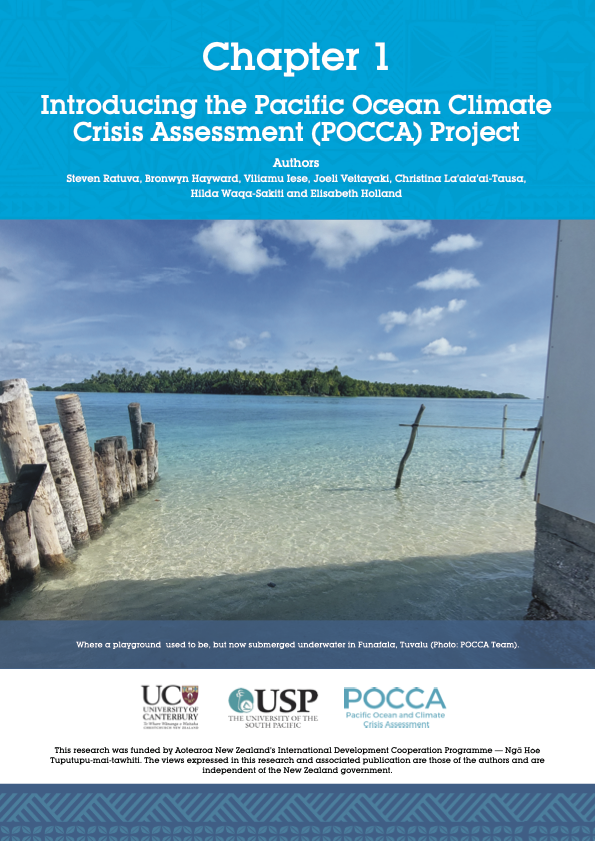
Authors
Ratuva Steven, Hayward Bronwyn, Iese Viliamu, Veitayaki Joeli, La’ala’ai-Tausa Christina, Waqa-Sakiti Hilda, Holland Elisabeth
The project: A brief overview
The Pacific Ocean Climate Crisis Assessment (POCCA) project provides an interdisciplinary, multicultural and transnational study of the impacts of climate change and community responses covering 16 Pacific Island Countries and Territories (PICTs): Cook Islands, Federated States of Micronesia, Fiji , Kiribati, Nauru, Niue, Palau, Papua New Guinea, Republic of the Marshall Islands, Samoa, Solomon Islands, Timor-Leste, Tokelau, Tonga, Tuvalu and Vanuatu. It was in response to the increasing demand for research and evidence-based adaptation and resilience policies, strategies and approaches to address the increasing impacts of climate change. The Pacific leaders as well as various organizations and citizens, have, in various forums, called for a region-wide research such as this to take place.
The project was funded through the Aotearoa New Zealand International Development Cooperation Programme which is administered by the New Zealand’s Ministry of Foreign Affairs and Trade. It is a collaboration between the University of the South Pacific and University (USP) and the University of Canterbury (UC) and involved multiple institutions and organizations across different countries.
POCCA brought together the largest number of Pacific scholars ever to work together collaboratively on a single project. The project helped to transform and enrich the Pacific research culture, regional networking and collaboration in significant ways. Those involved were from all universities in New Zealand (University of Canterbury, University of Otago, Lincoln University, Victoria University of Wellington, Massey University, University of Auckland and Auckland University of Technology) as well as crown research entities such as the National Institute of Water and Atmospheric Research Ltd (NIWA) and Institute of Geological and Nuclear Sciences (GNS); universities from the Pacific region (The University of the South Pacific, National University of Samoa, Fiji National University, Solomon Island National University, University of Papua New Guinea and University of Hawaii); as well as scholars from Australian universities (University of Melbourne, University of Queensland, Grifith University and University of Tasmania).
Rights
All rights reserved. This book is in copyright. No part must be republished without permission of the publishers.
